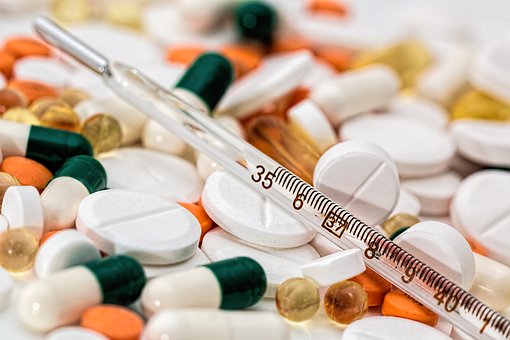Chandigarh: Arguing that pharmacy education courses are not technical programmes, the 69th Indian Pharmaceutical Congress (IPC) on Sunday passed a resolution that called on the Central Government to liberate all pharmacy courses from dual control of two agencies, the Pharmacy Council of India (PCI) and the All India Council for Technical Education (AICTE).
On the concluding day of the three day conference held here, Dr. Shailendra Saraf, Chairman, Local Organising Committee, said “the IPC issue of dual control of pharmacy education in India by Pharmacy Council of India (PCI) and All India Council for Technical Education (AICTE) has been affecting quality and prospects of pharmacy professionals for some time now.
No initiative has been taken by the Central Government to sort out this issue even after repeated representations by the PCI and pharmacy professionals in the past.
The PCI made an appeal to all the pharmaceutical associations, pharmacy professionals and new graduates to come together on one platform to press for a single regulating body for the pharmacy education in the country. Nothing much happened even after that appeal”.
“The Indian Pharma Congress is upset mainly because the AICTE is also sanctioning new pharmacy colleges and conducting periodical inspections of these institutions without the knowledge of PCI. In view of this, there is confusion existing among pharmacy colleges, students and the common man as to which authority is actually responsible to ensure standards for pharmacy education and the profession.
Now, the Pharmaceutical Congress has brought in a resolution urging the central government to do away with the AICTE control on pharmacy courses in the country”.
Contrary to the cases of medical, nursing and dental educational courses, pharmacy education, which is also part of the healthcare system, comes under the regulatory purview of the technical education regulator, All India Council for Technical Education (AICTE).
Along with statutory powers to regulate the educational programmes of engineering, technology, architecture, town planning, management, applied arts and crafts, hotel management and catering technology, the AICTE has been given the power to regulate the standards of degree and post graduate programmes in pharmacy conducted by academic institutions affiliated to various universities.
Dr. Saraf said that “under Pharmacy Act 1948, the Pharmacy Council of India (PCI) has the statutory power to control the pharmacy education and the institutions for approval for registration. It performs its duty well, and its advocacy as a single regulatory authority like Medical Council of India, Nursing Council of India and Dental Council of India, needs to be accepted and legally endorsed.”
Dr.Dhirender Kaushik, Organising Secretary, LOC, PCI 2017 said, “The dual control over pharmacy education by AICTE and PCI creates hindrance for maintaining quality education all over India. Pharmacy education in the country needs to be improved much as per global standards. So, AICTE’s interference in the management of pharmacy education should be done away with for the greater interest of the profession. For this, the Central Government’s attention is required for suitable amendments in the act eventually to liberate the courses from the clutches of dual control.”
On the concluding day, the Pharma Congress adopted some crucial issues in their resolution related to improvement and strengthening of pharmaceutical industry and overall profession of the country. One other resolution adopted related to the bulk import of active pharmaceutical ingredients (APIs), pharma raw materials required for drug formulations.
APIs and intermediates are key raw materials to manufacture pharmaceutical formulations such as tablets, capsules, syrups, etc. The pharma industry and the policy makers have raised concerns over India’s rising dependence on imports from China for many APIs that go into the making of a number of essential drugs.
“India may have emerged as a key supplier of generic and affordable medicine for the world market, its overwhelming dependence on China for crucial raw materials, such as active pharmaceutical ingredients (APIs) and intermediates, to the extent of over 75 per cent of the requirement, has emerged as a main worrying area,” said Dr. Kaushik
Apart from above issues the Congress has urged Union government to put in place an effective mechanism for the enforcement of safe drug through pharmacists only by making amendments in the Drug & Cosmetics Act 1948.
Over 10,000 delegates from India and abroad have assembled here to participate in the Congress making it a mega event for the pharmaceutical industry. The Indian Pharmaceutical Congress is a national annual event of pharmacist from all walks of pharmacy profession assembled to deliberate various issues relating to industry, regulatory, academia, hospitals and community pharmacy and to evolve collective wisdom for formulating newer policies for the country in the relevant fields and for the betterment of mankind.
The 69th IPC was held at the Chitkara University between December 22 and December 24 and was hosted by Association of Pharmaceuticals Teachers of India (APTI) and the Indian Pharmaceutical Congress Association (IPCA).
The theme “Skill and will to make and serve the quality pill” envisaged how a pharmacist can play a leading role in realizing the vision of a healthy India and stimulate thought processes accordingly.
ANI

